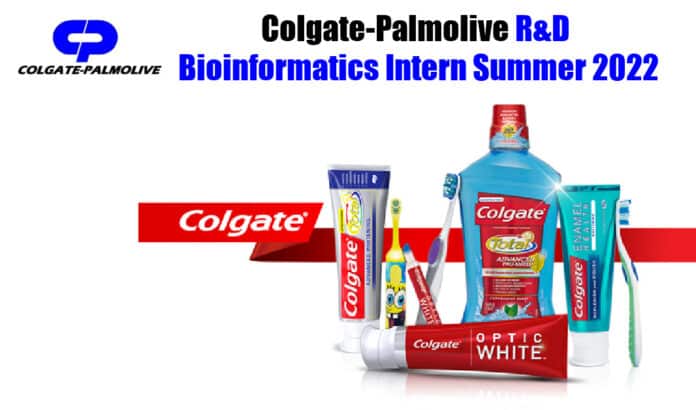Colgate-Palmolive R&D Bioinformatics Intern Summer 2022
Colgate-Palmolive R&D Bioinformatics Intern Summer 2022. At Hill’s we have a purpose. Every day around the world, we transform the lives of millions of pet families through pioneering innovation, amazing nutrition, and the best and brightest people. If you’re interested in work that matters, fueled by passion for pets, we invite you to apply to one of our R&D – Data Science/Bioinformatics Intern positions.
R&D Intern – Bioinformatics – Summer 2022
Travel Required?: No Travel
Date: Sep 29, 2021
Partial remote working option
Relocation Assistance Offered Within Country
# 112840 – Topeka, Kansas, United States
Our internships are unique in that you will work on a substantial project with one-on-one guidance from one of our many experts in the Animal Health research field. You will have the opportunity to network with other students in our program as well as get exposure to senior leaders in our company and our parent company, Colgate-Palmolive. And you’ll get paid while you learn! In your downtime, learn how to network and ask our leaders about their experiences to gain greater perspective and learn how you can fit into our family.
Qualifications
- Must be graduate student seeking a degree in Biology, Genetics, Computer Science, Physics or Computational Biology/Bioinformatics
- Minimum 3.0 overall GPA
- Ability to work in the United States on a permanent and unlimited basis
- Computational expertise such as Python, R are required and proficiency in Linux and grid/cloud computing are desirable.
- Experience with semantic modeling, text analytics or metagenomics data processing is a plus.
R&D at Hill’s uses a wide variety of data and information to better understand pet health and the impact of nutrition on health. Processing, integration, analysis and interpretation of these data is key to innovation and provides a plethora of opportunities for internship projects.
Potential projects include:
- Applying predictive analytics to animal health parameters to further the understanding of the impact of nutrition on health.
- Using natural language processing, linguistics or other technologies to evaluate and refine system vocabularies.
- Building statistical and analytical tools to research and support machine learning models for predicting phenotypic traits of pets.
- Analysis of metagenomic microbiome data.



